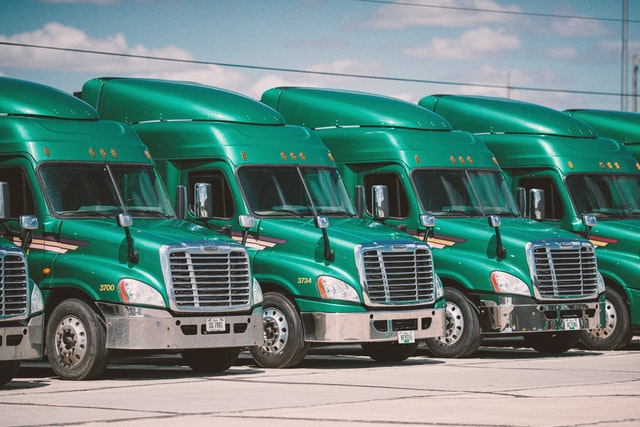More than 73,000 words have been removed from federal rulebooks in a swift move to massively deregulate transportation nationwide.
On May 29, 2025, U.S. Transportation Secretary Sean P. Duffy announced the revocation of 52 regulations across the Federal Highway Administration (FHWA), the Federal Motor Carrier Safety Administration (FMCSA), and the National Highway Traffic Safety Administration (NHTSA).
 Unpacking those changes, here’s more on:
Unpacking those changes, here’s more on:
- Why Massive Deregulation
- What Got Axed? An Inside Look at the Removed FMCSA, NHTSA & FHWA Regulations
- Removed FMCSA, NHTSA & FHWA Regulations: Proponents vs. Opponents
- The Road Ahead
To explore more about road safety and the trucking industry, check out Deadly Work Zone Accidents Highlight Urgent Need for Action, How 18-Wheeler Parking Shortages Contribute to Fatal Truck Accidents, and New FMCSA Rule for Truckers Puts English Proficiency in Driver’s Seat.
Why Massive Deregulation?
The move to eliminate dozens of transportation regulations reportedly stems from a “sensible” approach to eliminate red tape and streamline government. According to authorities, the removed rules:
- No longer enhance safety
- Are mainly outdated, duplicate, or obsolete regulations
- Impose unnecessary burdens on trucking industry companies and vehicle manufacturers
- Waste precious tax dollars.
Calling them “common sense changes,” Secretary Duffy has promised that removing these regulations “better reflects the needs of the American people.” Backing that up, authorities at the FMSCA have stated that:
All 52 deregulatory actions will increase efficiencies without compromising safety for the American people.
What Got Axed? An Inside Look at the Removed FMCSA, NHTSA & FHWA Regulations
 The 52 deregulatory actions affected more than a dozen rules at various key agencies, including:
The 52 deregulatory actions affected more than a dozen rules at various key agencies, including:
- 16 FHWA regulations
- 20 FMCSA regulations
- 16 NHTSA regulations
With trucking industry regulations specifically, some of the FMCSA rules that were erased from the books included those pertaining to:
- Motor carrier routing and outdated intercity route provisions pre-dating 2000
- Rear impact guard certification labels, eliminating hard-to-read trailer markings
- Retroreflective sheeting on pre‑1993 trailers, revoking obsolete retrofit requirements that are mostly irrelevant today
- Spare fuses, removing an unnecessary mandate for specific spare parts onboard
- Liquid-burning flares, cutting dated flare specs in favor of modern warning devices
- ELD operator’s manual, eliminating the paper manual requirement since online versions suffice
- Fuel tank overfill restriction, revoking a legacy 95% fill standard from 1973-era regulations
Removed FMCSA, NHTSA & FHWA Regulations: Proponents vs. Opponents
Largely praising Secretary Duffy’s move, trucking industry players—including motor carriers, manufacturers, and others—see the deregulatory actions as valuable opportunities to:
- Reduce paperwork
- Eliminate redundancies
- Streamline compliance
- Optimize operational efficiencies
These supporters laud regulators’ work to update rulebooks, align current rules with modern technology, and focus on what really matters.
Challenging that strong support are safety advocates and labor groups, who warn that:
- Removing allegedly “archaic” regulations carries risk.
- Those risks can be higher without sufficient safety reviews before such sweeping changes.
- Once-dormant rules might actually influence rare but critical safety outcomes, and removing them could weaken oversight without close monitoring.
The Road Ahead
Unprecedented in scale, the recent deregulatory moves could have broad and unexpected impacts, not just for the trucking industry but also for roadway safety in general. Only time will tell if the elimination of dozens of regulations results in any real safety payoffs—or if it results in avoidable new risks that bring more dangers to the roads.
While future crash data could shed light on this issue, it won’t help traffic accident victims recover when negligence has caused them harm. What can help is finding out more about your rights and legal options from an experienced car and truck accident attorney.

